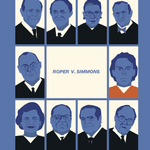Overview
Children are not as culpable as adults for their actions. In the death penalty context, that principle has caused debate about what age is too young for someone to be subject to execution. International human rights law has long prohibited the use of the death penalty against people who were younger than age 18 at the time of the offense. See Executions of Juveniles Outside of the U.S. In 2005, the U.S. Supreme Court brought the U.S. into compliance with that international norm, ruling that the U.S. Constitution also protects people from being sentenced to death for crimes committed when they were under 18. For more information, see the Roper v. Simmons Resource Page.
The Court had earlier (1987) held that the proper age cutoff should be 16, but states gradually applied more stringent standards to avoid conflict with other areas of the law where children were treated differently. By 2005, thirty states had either abolished the death penalty for all offenders or at least for those under the age of 18. As with its earlier ruling exempting defendants with intellectual disabilities, the Court found that a national consensus had formed around excluding those under 18, and that there was little to be gained in terms of deterrence or retribution by executing younger offenders. Some Justices pointed to the fact that the U.S. was virtually alone in the world in allowing juvenile offenders to be executed. The emerging science of brain development also contributed to this decision.
At Issue
Debate now focuses on whether 18 year olds should be held as responsible as adults for violent crime. Some have suggested that 21 would be a more appropriate age both because of the rights and responsibilities conferred by society at that age and because new brain science shows that critical areas of the brain relating to judgment, impulse control, and consequential thinking do not mature until the mid-twenties. The Court’s rationale on why it excludes juveniles from death penalty eligibility has been applied to other decisions regarding the use of life-without-parole sentences for this same age group.
What DPIC Offers
DPIC has carefully monitored the flow of state legislation and court decisions regarding the appropriate age for the death penalty. The pertinent Supreme Court decision is fully analyzed. DPIC also makes available the thorough research by others on the use of the death penalty for juveniles in U.S. history, with statistics on sentences, executions, and the race of defendants.
News & Developments
News
Oct 06, 2025
Tennessee’s Execution of Christa Pike Would Make Her the First Woman to be Executed in the State in Over 200 Years
In an order dated September 30, 2025, the Tennessee Supreme Court set an execution date for Christa Pike, the only woman on Tennessee’s death row. If her execution proceeds as scheduled on September 30, 2026, Ms. Pike will be the first woman executed in the state in more than 200 years and the only person executed in Tennessee for a crime committed at age 18, 19 or 20 in the modern death penalty era. > “Life imprisonment is a proper punishment for Christa, just as it…
Read MoreNews
Aug 26, 2025
DPI Report Examines the Legacy of Roper v. Simmons and Its Implications for 18- to 20-Year-Olds in Death Penalty Cases
This week we are featuring some articles from the first part of 2025 that we think are worth another look. We’ll be back with new articles next week. This article was originally posted on April 30, 2025. In commemoration of the 20th anniversary of the U.S. Supreme Court’s landmark decision ending the juvenile death penalty, the Death Penalty Information Center (DPI) today released a new report: Immature Minds in a“Maturing Society”: Roper v. Simmons at 20, detailing…
Read MoreNews
Jun 25, 2025
New Book of Interest: The “Slow Death” of U.S. Death Penalty
The death penalty in the Unites States is experiencing what scholars call a“slow death.” In their forthcoming book,“The Slow Death of the Death Penalty: Toward a Postmortem,” editors Todd C. Peppers, Jamie Almallen, and Mary Welek Atwell bring together death penalty experts to examine this shift in the use of capital punishment. New death sentences and executions still occur in a limited number of states; but Peppers et al reflect on the broader trends away from use…
Read MoreNews
May 06, 2025
New Analysis: How Race Affects Capital Charging and Sentencing of 18- to 20-Year-Olds
In commemoration of the 20th anniversary of the U.S. Supreme Court’s landmark decision ending the juvenile death penalty, the Death Penalty Information Center (DPI) has released a new report: Immature Minds in a“Maturing Society”: Roper v. Simmons at 20, detailing the growing support for the idea that individuals ages 18, 19, and 20 should receive the same age-appropriate considerations that juveniles now receive in death penalty cases. The report also reveals…
Read MoreNews
May 01, 2025
DPI’s Podcast 12:01 The Death Penalty in Context: Experts Discuss the Legacy of Roper v. Simmons
In this month’s podcast episode of 12:01: The Death Penalty in Context, DPI’s Managing Director Anne Holsinger speaks with Professors Craig Haney and Frank Baumgartner, and DPI’s Staff Attorney Leah Roemer about the legacy of the US Supreme Court’s decision in Roper v. Simmons and the legal and scientific landscape surrounding the use of the death penalty for young adults ages 18 – 20. Professors Baumgartner and Haney, along with fellow researcher Karen Steele,…
Read More

